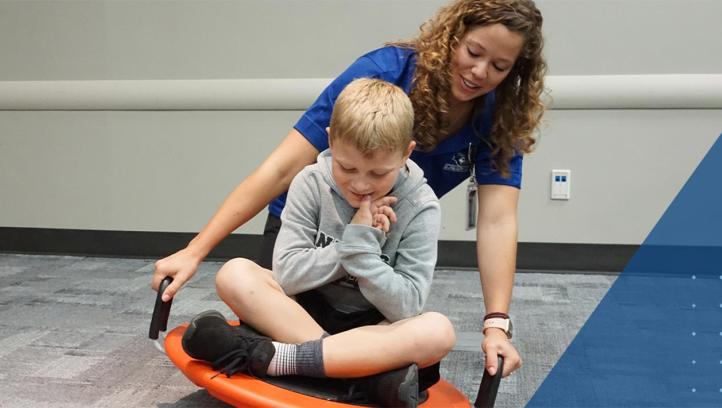
An integrative health and wellness degree is an investment in prevention

Our nation’s healthcare system is rapidly evolving. Providers are incentivized to produce better patient outcomes and reduce recurring patient visits. Employers prioritize health and wellness in the workplace, aiming to increase the ROI on their employees’ benefits. They understand that lower costs and increased productivity are two perks of a prevention mindset.
These are just a few examples of why there’s no better time to earn an integrative health and wellness degree. Keep reading to learn more about this type of training and the exciting opportunities it can reveal.
Understanding the increasing emphasis on health and wellness
According to the CDC, preventing disease is far less expensive than treating people after they get sick, particularly for chronic illnesses. This realization has increased the demand for qualified professionals to help facilitate these programs in various settings. Earning a suitable degree in the health sciences can prepare you for opportunities in this growing field.
“This is really a booming time, with the emphasis on health and wellness plus doing what we can to prevent chronic disease,” says Amy Cosimano, EdD, RN, and assistant professor in the School of Medicine’s Department of Family and Community Medicine. She goes on to explain how healthcare clinics, doctor’s offices, health insurance agencies, and others embrace this idea. In addition, many corporations now employ health and wellness coaches to help educate and motivate individuals to implement and sustain life-changing healthy behaviors.
Research says 75–80 percent of doctor’s office visits are due to chronic illness and lifestyle. “Even if they go in with a headache or a stomachache or similar, when you drill down, you’ll find it has to do with stress and their diet, they’re not sleeping, or their nutrition is off,” Cosimano explains.
Creighton professor and Integrative Health and Wellness Program Director Tom Lenz, PharmD, recalls the launch of an employee health program at the university aimed at supporting employees at high risk for cardiovascular disease. “We did a pilot for a year, and the outcomes were very positive,” Lenz shares. “Not only were the patients’ markers improved, but the ROI of the program after that first year was four dollars for each dollar spent. If a patient stayed in the program for five years, that ROI jumped to 9:1. We knew we were onto something here!”
Statistics like these are part of why students seek integrated health and wellness degrees — to become part of the solution.
A closer look at the Integrative Health and Wellness degree
Creighton University’s Master of Science in Integrative Health and Wellness (IHW) fills the increased need for health and wellness coaches. Students learn from faculty members and practitioners in the School of Medicine and across various disciplines in this interdisciplinary program. The curriculum prepares students to work as part of a diverse team of healthcare professionals.
Integrative Health and Wellness courses include:
- Personal Development for the Health and Wellness Coach
- Healthy Aging: Concepts and Strategies for a Life Well Lived
- Health Behavior Modification
- Nutrition for Chronic Disease
- Stress and Sleep Management
- Health and Wellness Coaching: Theory to Practice
Toward the end of the program, students can put their training to work by participating in independent scholarly projects under the supervision of a faculty member. A practicum option also allows students to gain hands-on experience designing and implementing a project within an existing organization.
The program culminates with a capstone in Integrative Health and Wellness course that challenges students to reflect upon their studies to lay the groundwork for their careers. This includes defining their vocation and creating a comprehensive and evidence-based case study in integrative health and wellness.
Throughout your entire educational journey, you’ll learn to take a whole-person approach, considering all aspects that may affect an individual’s health. Creighton’s Jesuit values teach cura personalis or treating the whole person — not just pain or the symptom but the cause. This concept is an underlying theme of the entire Integrative Health and Wellness program.
A multidisciplinary approach to health coaching
When it comes to Creighton’s Integrative Health and Wellness degree, Lenz feels that the coaching piece is significant. He relates it to the role of a mountain trail guide:
“I’m going to help show you the way. I’m not going to carry you up the mountain. You still need to do your own work. But I can show you a path that might be a little easier to take up, give you some pointers along the way and keep you motivated.”
This graduate program is housed in the School of Medicine and facilitates interprofessional learning. Faculty in this department come from other backgrounds in business, health, education, law and the arts and sciences.
“We have great support and encouragement and resources in the School of Medicine because it’s such a good fit,” Cosimano says. The IHW program is ideal for healthcare professionals or others in the health and wellness industry interested in helping individuals take charge of their health.
What can you do with an Integrative Health and Wellness degree?
The diverse training and curriculum included in this program prepare students to pursue a variety of meaningful careers. Some common positions include:
- Health coach
- Wellness director
- Community health worker
- Corporate wellness coordinator
- Health education specialist
Whether you’d prefer to work in a one-on-one setting or in a group environment, there is a way for you to make a difference with a health and wellness career. Lenz explains that Creighton graduates have found employment in many settings, including health and wellness coaching, employee health roles and working in traditional healthcare settings like primary care clinics and acute care settings.
“We’ve had a number of those students who have opened their own health coaching practice and have been successful,” Lenz says. “They are making a difference for people, which is a great thing.”
One of those graduates is Jessica Guerrero. Previously, she was a nurse who worked in mental health and pediatrics. She saw a failing healthcare system. “I’ve been working as a nurse for 13 years and saw we were just trying to plug the hole. I was ready to tackle the root of these problems, and that’s what I feel like I get to do now through coaching– help people find the right answers for them. That’s the stuff that leads to sustainable change. And that’s what coaching is all about.”
Creighton’s program offers two unique educational pathways: Health and Wellness Coaching or Healthy Aging. This allows you to cater your training even further to align with your personal and professional goals.
Make a difference with an Integrative Health and Wellness degree
There is no better time to become a health coach and help fill the gap. With the proper training and education, you can help individuals make lasting improvements to their health while assisting organizations in cutting costs and increasing productivity.
The good news is you can complete this program entirely online, working it around your existing schedule. It’s also an approved training program by the National Board for Health & Wellness Coaching, ensuring you’ll be prepared to earn NBHWC certification upon graduating. Learn more by visiting our Online Integrative Health and Wellness master’s degree page.
















